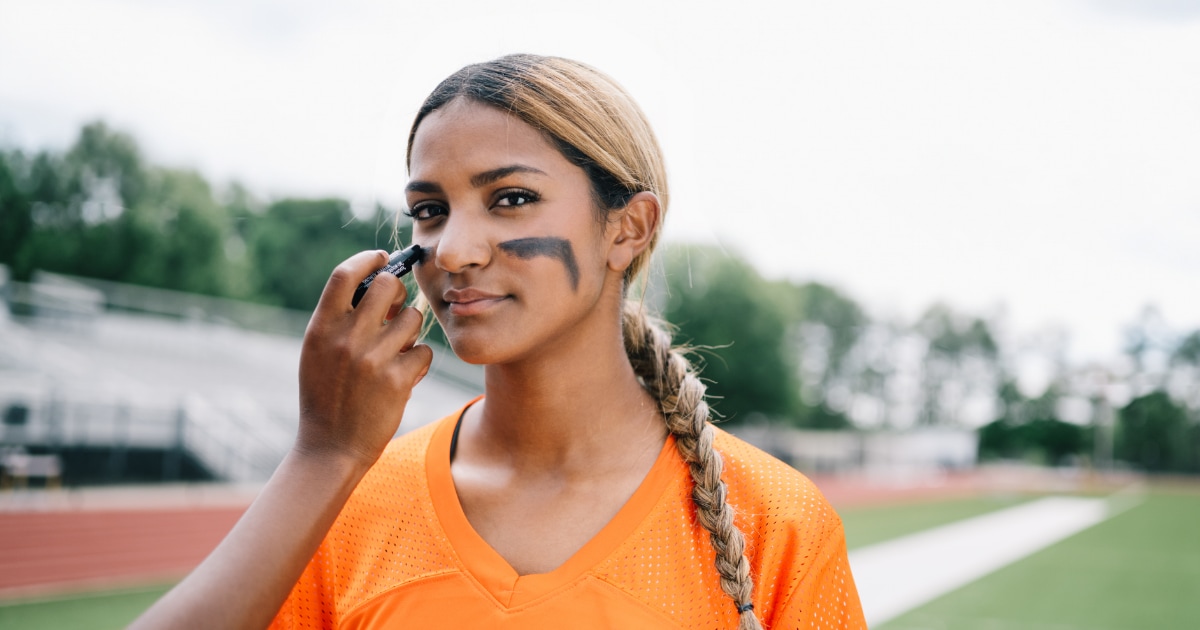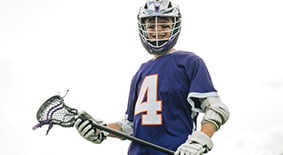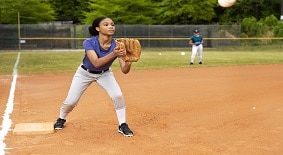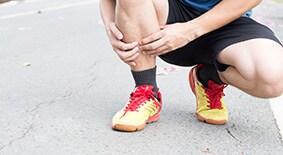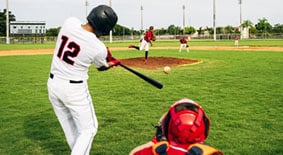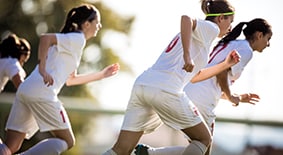3 Reasons a Sports Medicine Doctor Is the Right Pick for Your Teen Athlete
As your teen athlete grows, a pediatric sports medicine primary care physician (PCP) can help him take the best care of his body after an injury or as his training intensifies.
Teen athletes are not small adults. They have different physical and emotional needs. They also have growth plates and other anatomical differences, so it’s important for them to see a pediatric specialist who is experienced in diagnosing and treating teens and their injuries.
Sports medicine PCPs, or sports medicine doctors, are specially trained to care for growing athletes. They are board-certified in general pediatrics or family practice with an additional year of subspecialty training and board certification in sports medicine.
“Our focus is more specific than general pediatrics,” says Ashley Brouillette, MD, a sports medicine primary care physician in the Sports Medicine Program at Children’s Healthcare of Atlanta. “We care for athletic injuries or athletic illnesses that pediatricians might not be comfortable treating or providing guidance on when it’s safe to return to play.”
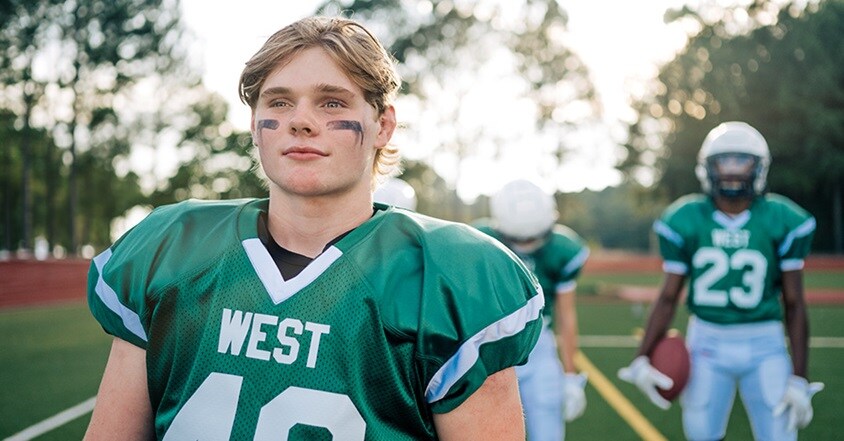
Pediatrician or Sports Medicine Doctor?
Your athlete’s pediatrician is his medical home and the front line for most checkups, illnesses and injuries, from shots and sore throats to sports physicals. But when an athletic injury and its aftermath require more specialized expertise, a referral to a pediatric sports medicine doctor is the best option.
Your teen athlete should see a pediatric sports doctor if:
- He suffers an acute injury that prohibits him from returning to sports.
- Symptoms such as pain, swelling or decreased range of motion do not go away after rest, modified activity or treatment at home.
- His training or performance is affected by an injury that has not been diagnosed or treated.
Below are the top three reasons why a pediatric sports medicine doctor is the right provider to care for your teen athlete.
When a growing athlete is injured in practice or competition, getting the right diagnosis and initiating proper care and treatment as quickly as possible is key to a healthy recovery. Children’s sports medicine doctors provide comprehensive evaluations for a wide range of injuries and conditions that affect athletes in all sports. They can determine the cause of injury and provide instruction on next steps in the care of growing athletes at all levels of competition.
Plus, pediatric sports medicine doctors from Children’s are out on the field, providing immediate medical support and coverage to club and school sports teams.
“Our training is geared specifically toward evaluating pain and injuries in teen athletes. We work closely with athletic trainers in schools and gyms across metro Atlanta, as well as with physical therapists. This allows us to provide comprehensive care from the time of the injury through rehabilitation, and get them back onto the field or stage as soon as possible,” says Dr. Brouillette.
Approximately 90% of all sports injuries can be treated without surgery. A sports doctor is specially trained to maximize nonsurgical treatment and guide appropriate referrals to sports physical therapy and occupational therapy. If operative treatment is the best option, a sports medicine doctor can expedite a referral to a pediatric orthopedic surgeon.
Nonsurgical care tailored to your athlete’s needs
Each kid is unique, and so are their injuries. We work collaboratively with our entire team of skilled specialists to create a care plan tailored to give each athlete the best chance at a good outcome. In many cases, we can achieve optimal results without the need for surgery. These treatments require less down time and have fewer risks, and may include:
- Medical and injection therapies
- Physical and occupational therapy
- Medication management
- Casts, splints and braces for immobilization
- Injury prevention strategies for specific sports
What types of injuries do sports doctors treat?
Sports injuries are not always traumatic or sudden—they can have subtle symptoms that progress over time. Sports doctors treat the full spectrum of musculoskeletal problems or anything that affects your young athlete’s bones, muscles, ligaments, tendons and nerves. Some of the most common include:
- Acute injuries, such as ankle sprains, muscle strains, knee and shoulder injuries, and fractures
- Overuse injuries, such as rotator cuff and other forms of tendonitis, as well as stress fractures
- Osteoarthritis
In addition to musculoskeletal problems, sports medicine doctors are trained to help young athletes manage other aspects of their health that can affect play and performance. This includes:
- Concussion (mild traumatic brain injury) and other head injuries
- Chronic or acute illness, such as infectious mononucleosis, asthma or diabetes
- Nutrition, supplements, ergogenic aids and performance issues
- Exercise prescription for patients (guidance on what kind of exercise would be a good fit based on a child’s age, goals, pain and other limitations)
- Motion analysis to correct movement for performance improvement
- Return-to-play decisions in the sick or injured athlete
- Recommendations on safe strength training and conditioning exercises
- Healthy lifestyle promotion
To help your teen overcome an injury and get back to the sports he loves, choose a pediatric sports medicine doctor trained in caring for young athletes.
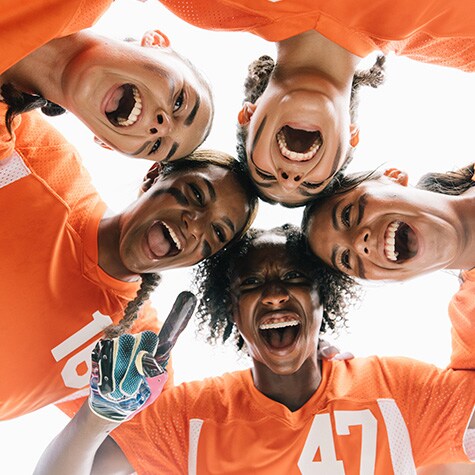
We’re the go-to for teen athletes
The highly qualified and experienced pediatric sports medicine specialists at Children’s are dedicated exclusively to youth and teen athletes. Each member of our team is focused on getting kids back to doing the things they love most, in the safest ways possible.
Find a SpecialistKeeping Young Athletes Healthy
Ashley Brouillette, MD, a Pediatric Sports Medicine Primary Care Physician in the Sports Medicine Program at Children’s Healthcare of Atlanta, specializes in the treatment of teen athletes. Dr. Brouillette completed her fellowship at Texas Children’s Hospital and served as Team Physician for Texas Southern University covering football, women’s soccer and women’s basketball. Dr. Brouillette acts as the team physician for Stockbridge High School and Hampton High School.
This content is general information and is not specific medical advice. Always consult with a doctor or healthcare provider if you have any questions or concerns about the health of a child. In case of an urgent concern or emergency, call 911 or go to the nearest emergency department right away. Some physicians and affiliated healthcare professionals on the Children’s Healthcare of Atlanta team are independent providers and are not our employees.
Contact Us 404-255-1933
